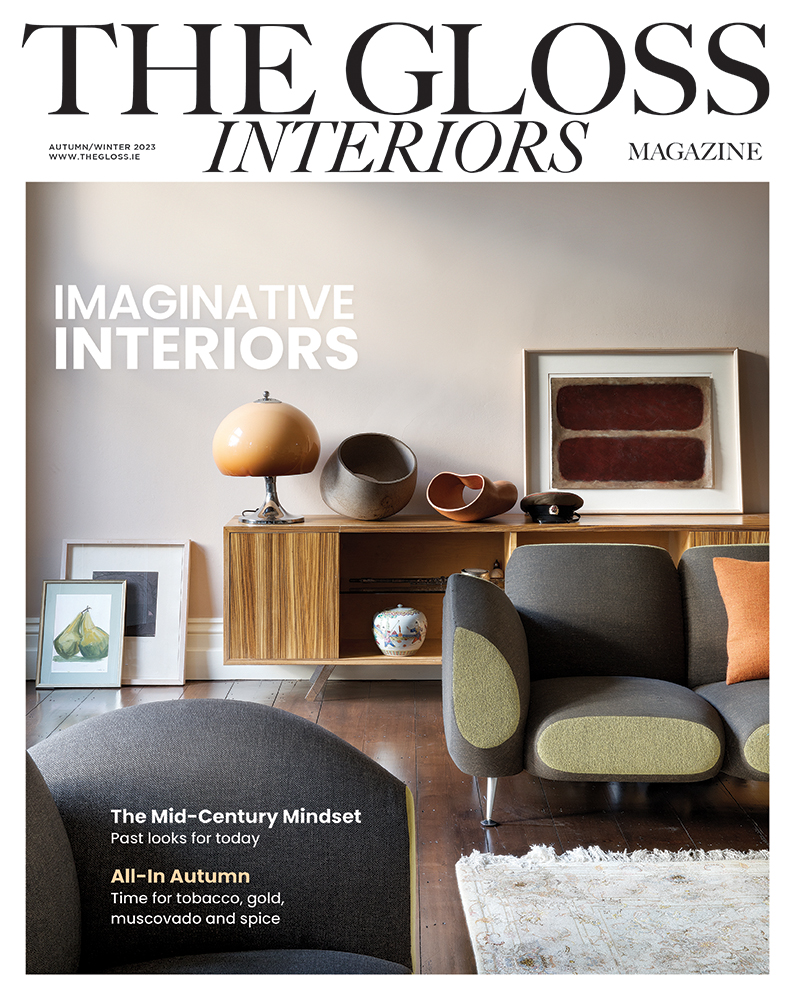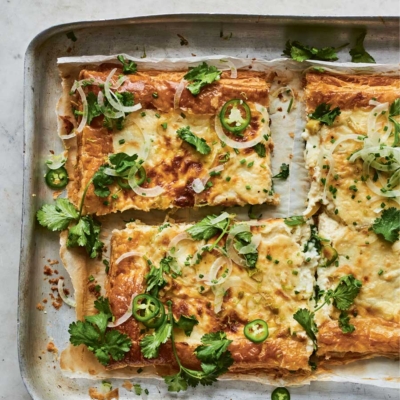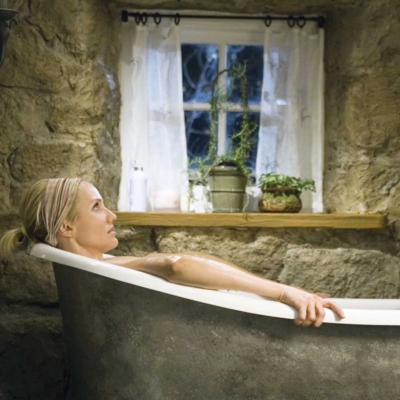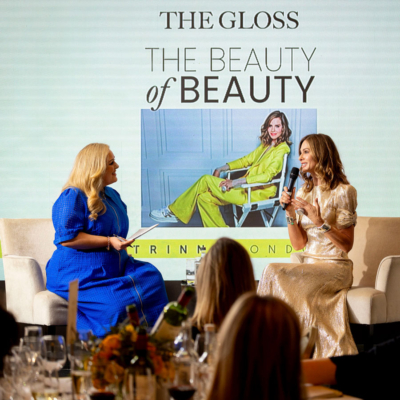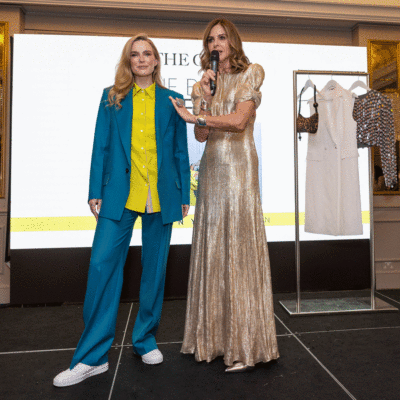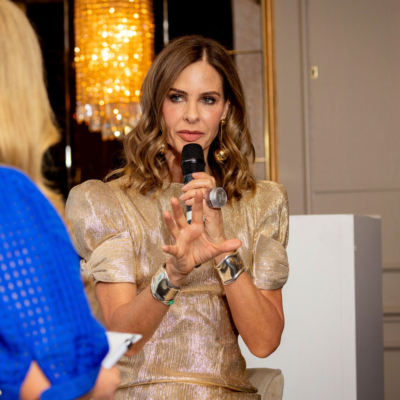Michelle Gallen is an emerging writer from Co Tyrone, Northern Ireland. Brought up in the border town of Castlederg during the Troubles, it’s a place and time which inspired her exceptional debut novel, Big Girl, Small Town. A tragicomedy set in fictional Aghybogey, the year is 2004, a decade post ceasefire.
Gallen has gifted us an unforgettable protagonist in Majella O’Neill who, due to autism, scarcely manages the tedium of human interaction. It’s not ideal when one works in the local chipper, A Salt n Battered!, with many colourful customers to serve. Hour by hour, she cites the many things she’s not keen on (in all their itemised glory) while we accompany her over the course of a week. Her “good list” includes watching her Dallas box set, through which she achieves a zen-like state in the privacy of her bedroom.
Majella’s story begins when her beloved grandmother is murdered, and she becomes the focus of widespread gossip. Since her father disappeared 16 years ago, our corpulent heroine has played nursemaid to her narcissistic, alcohol-fuelled mother with whom she shares a filthy house. As Majella drifts between her misadventures past and present, from the darkest time in her life comes the great possibility of hope. With dialogue written in phonetics, Big Girl, Small Town brings an authenticity which has naturally drawn comparisons to Derry Girls and Milkman, with echoes of Eleanor Oliphant is Completely Fine. Sara Baume has called the book, “bawdy yet beautiful, full of everyday tragedy, absurdity and truth.”
Gallen studied English Literature at Trinity College Dublin and Publishing at Stirling University. She has published work in The Stinging Fly, Mslexia, and won the Orange/NW Short Story Award. She took part in the inaugural xBorders programme and was a finalist at the Irish Writers’ Centre Novel Fair 2019. At age 23, Gallen worked as a copywriter in London, where she suffered a brain injury as a result of encephalitis, and took several years to recover. She is now an accomplished digital learning consultant and public speaker who has successfully co-founded three award-winning companies.

Michelle Gallen lives in Dublin with her family. She is currently finishing her second novel.
Big Girl, Small Town (€15.99) is published by John Murray and available from bookshops nationwide.
On home
After quite a few moves, I now live with my husband and kids in Kilmainham, a stone’s throw from the room I shared with another student when we started Trinity College Dublin. My kids’ favourite activity is forest school, where they head into Phoenix Park to light fires, swing in trees and build dens. We also love exploring Dublin 8, looking at how it’s changing. When we moved here, the building site of the National Children’s Hospital was a giant hole in the ground. Now it’s a concrete and steel structure that soars above our heads. I love the way fancy yoga cafés rub shoulders with sex shops, how bijou cocktail bars gleam beside family butchers. My kids love to get fish and chips from the takeaway that was my local as a student, but also like picking up vegan pizza when we fancy something different. One thing that hasn’t changed is the seagulls. They’re still hungry and are everywhere!

On roots
I grew up in a parochial house. The priests were long gone when we arrived – but they left church stuff behind. I remember my little sister breaking into the oak tabernacle the priests had left upstairs. She found and ate some very mouldy communion wafer that we had assumed was consecrated, which must count as one of the youngest First Holy Communions ever made in Ireland. We used a creepy old confessional box as a playhouse. On special occasions we were allowed to strike the beautiful old brass altar bell in the sitting room – I still love how it echoes through the house. On wet days my parents would send us out to the enormous dance hall attached to the main house. We ran wild in there, sometimes acting plays on the stage to the sound of rain on the corrugated iron roof, but mostly scuffing up dust as we danced or played on the wooden floorboards.
On early reading
With full-time jobs and six kids, my parents didn’t have time to read to us. Instead, my mother taught us how to read and set us loose. I adored the Ladybird books we had in school. I read and reread the Famous Five books my aunt sent from England. Trips to our local library were a huge treat and I read everything from the Just William series to classics like The Secret Garden. When I visited my great aunt Sara-Ann, I’d hide with one of her Reader’s Digest condensed novels – they were just the right size for me to inhale during a visit. My mother’s collection of Walter Macken novels introduced me to Irish literature – I loved the sense of place in those books. The Childhood Story of Christy Brown was the first “banned” book I read. My mother said I was too young to read it, so I sneaked it off the shelf and read it in secret. His story has been an inspiration for me for years, the narrative of overcoming a key influence in my life.
On family
I grew up in a family that loves telling stories about us to us. When I visited my father’s mother, the kettle went on and the telly went off. The adults would work through the latest news and stories from the local area and we’d report on our progress in school before we’d finally get to the main course: stories from the past. Storytelling was a collective experience: all the adults fed into each story, sometimes contradicting what someone said, sometimes adding colour. My paternal grandfather had a very different storytelling style. As a former British soldier who had survived five years of captivity in a POW camp, his stories were astonishing monologues, featuring people, places and experiences completely unfamiliar to me. I miss all my grandparents deeply, but I’m grateful for the stories they told me – these are the earth in which I have my roots.
On creating
I write in our “spare” room, which is crammed with toys, musical instruments and a telescope. It’s a small, bright room that looks over the linear park: I like to see the Luas streak past on its way in and out of town. There are lots of trees outside, and in spring I love seeing leaves unfurl and blossoms bursting out. DCC have put forward some exciting new plans to redevelop the park, which include allotments, playgrounds and a cycle path. I can’t wait to see how these changes open the park up to more activity. The light in this room is important to me – when I’m screen-dazed I look out the window, letting my eyes see clouds, not pixels.
I’ve found that if I don’t have peace in my head, I won’t find peace in the world.
On independent bookshops
The Gutter Bookshop in Temple Bar, Dublin is special to me. I don’t get in as often as I’d like now that we live in Kilmainham, but when we first moved to Dublin, it was our “local” bookshop and I’d bring my kids there to browse for birthday presents. It was their first experience of an Irish bookshop, and we were all thrilled to see books we were familiar with alongside Irish language books that were hard to find in London.
On her “To Be Read” pile
I’m currently reading Leonard and Hungry Paul, which has been on my radar for the past while and just felt like right book for my current mood. I’m also working my way through Ducks, Newbury Port (I’ve a feeling I will be snacking on it until the summer). I’m dying to read Testaments by Margaret Atwood and Olive, Again by Elizabeth Strout because Olive is my favourite of all her characters. I met Niamh Boyce at the Irish Writers’ Centre and have bought her debut, The Herbalist. Someone lovely is sending me Billy Connolly’s autobiography, and I’ve also been given two delicious looking books that will be hitting the shops soon – This Happy by Niamh Campbell and You Have to Make Your Own Fun Around Here by Frances Macken. I can’t wait to get my hands on Elaine Feeney’s novel As You Were – it’s set in a failing Irish hospital and I suspect I’ll be taken hostage by it.
On escape
I’ve found that if I don’t have peace in my head, I won’t find peace in the world. I’ve been practicing meditation on and off for years. When I have a sustained practice I see and feel the difference in my life. But all too often I used meditation the way I used to use prayer – I turn to it in times of crisis. Once the emergency has passed, I pay less attention to meditation. Despite my fragmented meditation practice, I know it has brought me peace no matter where I’ve lived and I am trying to become more disciplined. I recommend it to everyone.
On Big Girl, Small Town
I was writing a collection of short stories all based in the border area in which I grew up. One of these stories was called “Double Tub” and most of the key elements of the finished novel were already in place: it was set in a chipper, it featured a disappeared father, a depressive alcoholic mother with disordered eating, and the Daly brothers. But the protagonist was male, and while that worked in the short story, I was much more interested in exploring the story from a female point of view. I had a blast writing the novel – I wrote most of it in a fury over 30 days, and I used to workshop scenes with my writers’ group in Belfast, and discuss chapters with friends over pints. It was an enormously fun experience, despite the dark material.
On memory
Before my brain injury I had a photographic memory. Afterwards, I was lucky to remember if I’d eaten breakfast. I worked hard to improve my memory over the years, and eventually felt comfortable writing a short story. I could pour one out in single sitting, then edit it until I was happy, I lacked the confidence to start a novel. I didn’t believe I could tackle such a big project, and was worried there’d be “gaps” in my writing. One of the reasons Big Girl, Small Town takes place over the course of the week, in carefully timed segments, was that this gave me a way to keep a tight control over the narrative. I wrote most of it in one month because I could immerse myself in this one project, instead of multi-tasking, which is much harder for me.
On what’s next
I’m finishing my second novel, Factory Girls. It’s based on my experience of working in a shirt factory during the twilight of the British textile manufacturing industry. The protagonist is smart-mouthed Maeve Murray, who takes a job in the local shirt factory while she waits for her A-level exam results. It’s set in the incendiary summer of the Northern Irish ceasefire. Maeve and her best friends hope to make it out of their troubled home town, but things don’t go according to plan. After that I’d like to finish writing my memoir. Memoir writing feels like quite a different space to short stories and novels so that’s something I want to deep dive into next year.
LOVETHEGLOSS.IE?
Sign up to our MAILING LIST now for a roundup of the latest fashion, beauty, interiors and entertaining news from THE GLOSS MAGAZINE’s daily dispatches.

